Sustainable Sourcing in Organic Makeup: A Commitment to the Environment
flareAI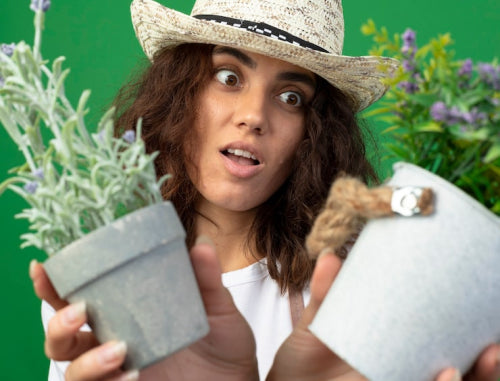
Quick Listen:
In an era where the average woman discards enough beauty packaging to fill a small suitcase each year, the beauty industry's pivot toward sustainability feels less like a luxury and more like a necessity. Picture this: a tube of lipstick not just tinting your lips but also safeguarding rainforests, or a foundation that nourishes your skin without depleting the earth's resources. This isn't fantasy it's the new reality propelled by discerning consumers who scrutinize labels as closely as they do mirrors. At the forefront stands Liht Organics, a brand that doesn't merely whisper promises of green practices but shouts them through every ethically sourced ingredient and recyclable container. As we delve into the mechanics of sustainable sourcing in organic makeup, it's clear that this commitment isn't just environmentally sound it's a blueprint for the beauty of tomorrow.
Many women feel trapped by makeup that hides flaws but risks irritation and hidden toxins. This daily choice weighs heavily, dimming confidence over time. Liht Organics invites you to embrace beauty differently. With up to 90% USDA-certified organic ingredients, our vegan, cruelty-free products deliver vibrant color and gentle care, letting you glow with confidence, knowing your skin is nurtured, not compromised. Shop Now!
The Green Revolution in Makeup
The surge in organic beauty isn't a fleeting fad; it's a seismic shift backed by hard numbers. The organic beauty and personal care products market, valued at USD 189.59 billion in 2025, is on track to swell to USD 257.94 billion by 2030, propelled by a steady 6.35% compound annual growth rate.Asia Pacific dominates as both the largest and fastest-growing region, fueled by a burgeoning middle class prioritizing ethical consumption over fleeting trends. Liht Organics embodies this momentum, delivering vegan, cruelty-free makeup that marries impeccable performance with unyielding environmental stewardship. Their core belief? True beauty emerges when innovation harmonizes with planetary health, ensuring that every application contributes to a legacy of conservation rather than consumption.
Today's shoppers transcend transactional purchases; they seek narratives of integrity. They interrogate whether that iridescent highlighter stems from exploited labor or ravaged ecosystems. Liht Organics responds decisively, embedding sustainability across its supply chain from meticulously vetted raw materials to packaging designed for a circular economy. This aligns with a global awakening to environmental, social, and governance (ESG) imperatives, transforming them from corporate footnotes to boardroom mandates. Brands ignoring this tide risk obsolescence, while pioneers like Liht Organics forge ahead, redefining luxury as responsibility in a hyper-connected world where one viral exposé can topple empires.
Trends Shaping Sustainable Sourcing
Central to this evolution is the ascent of eco-friendly ingredients, a response to the cosmetics sector's mounting ecological toll. Petrochemical derivatives, once ubiquitous, now yield to plant-based oils, organic pigments, and naturally derived elements that sidestep the pitfalls of animal exploitation, deforestation, and heavy metal catalysts. These shifts mitigate environmental pollution, curb bioaccumulative waste, and eliminate residues like 1,4-dioxane and ethylene oxide, all while preserving food industry outputs.A marked increase in journal publications and patents from 2013 to 2023 signals the urgency of this quest, as companies race to craft formulations that satisfy regulatory scrutiny and consumer cravings for authenticity. Liht Organics excels here, harnessing staples like organic coconut oil and shea butter from regenerative farms to yield products that pamper the skin and the soul alike.
Packaging, long a silent saboteur, now commands equal attention in the sustainability playbook. Akin to fashion's fast-cycle excesses, beauty's disposables think non-biodegradable tubes and excessive wrappers exacerbate landfill crises and microplastic proliferation. Innovators counter with refillable systems, biodegradable composites, and streamlined designs that slash material use. Liht Organics champions glass vials and compostable pouches, trimming plastic dependency and embodying a ethos of mindful minimalism. Such measures directly combat the sector's outsized footprint, where unsustainable sourcing and waste generation mirror apparel's environmental ravages, demanding accountability amid lax oversight.Slow progress persists, but consumer vigilance on ESG hotspots like production ethics is accelerating change, even as greenwashing lurks in regulatory shadows.
Transparency serves as the linchpin, empowering buyers to follow ingredients from soil to shelf. Yet, stark realities persist: a 2024 QIMA survey found that just 52% of global firms can trace over half their suppliers, underscoring vulnerabilities in visibility that threaten compliance and credibility.Tightening FDA and EU mandates on disclosure amplify this pressure, compelling brands to fortify chains against opacity. Liht Organics rises to the occasion with digital ledgers and supplier disclosures, demystifying origins and processes. This fortifies trust in a landscape rife with nebulous "clean" labels that often veil ethical lapses, turning potential pitfalls into pillars of loyalty.
Liht Organics in Action
Consider Liht Organic's flagship organic mascara, a testament to precision in provenance. Its hero component, organic castor oil, hails from cooperative farms embracing fair trade tenets eschewing synthetic pesticides to nurture biodiversity and soil vitality. From cultivation to compounding, each phase is audited and archived, aligning with rigorous benchmarks that transcend mere certification. This holistic approach doesn't merely produce mascara; it cultivates ecosystems of equity, where farmers thrive alongside forests.
Peers in clean beauty echo these strides. Collaborations with regenerative argan groves or aloe sanctuaries abound, bolstered by blockchain for immutable tracking. Liht Organics distinguishes itself through proactive education product inserts detailing farm stories, QR codes linking to video tours transforming transactions into teachable moments. Echoing this, supply chain sage Rodney Manzo of Anvyl insists on tactile verification: "Quality starts with direct observation," he asserts, underscoring irreplaceable audits that map material flows and preempt breakdowns. Liht Organics internalizes this, conducting on-site reviews to safeguard integrity from harvest to hue.
Challenges on the Horizon
For all its promise, sustainable sourcing braves formidable barriers. Premium pricing shadows organic procurement, compounded by supply volatility from climate whims and geopolitical frictions. Navigating certifications USDA Organic, Fair Trade entails bureaucratic labyrinths, where disparate global protocols strain resources. Greenwashing endures as a specter, exploiting regulatory voids to peddle illusions of virtue, thus fraying the fabric of consumer faith.Accountability lags, with ESG blind spots in packaging and sourcing inviting scrutiny.
Logistics loom large too: transcontinental hauls of perishables inflate carbon tallies, clashing with eco-credentials. Liht Organics mitigates via regional sourcing and carbon-neutral carriers, yet industry-wide frailties persist. Analysts at RTI International illuminate the crux: surging natural ingredient adoption collides with deficient oversight, from social inequities to ecological strains, sans foolproof verification.Paradigm pressures mount from stakeholders, spotlighting supply chain intricacies and the promise of nascent standards to bridge gaps in ethical assurance.
Opportunities for Growth
These obstacles, though daunting, unveil avenues for ascent. Ethical sourcing cements allegiance among values-driven demographics, who reward transparency with wallets wide open. Liht Organics leverages this, parading supply sagas to carve a niche amid homogenization, capturing the premium-seeking segment ballooning with market expansion. Alliances with ethical growers yield symbiotic gains bolstered communities, resilient yields while amplifying brand narratives of impact.
Economically, the math is compelling: with the sector eyeing USD 68 billion in additive value by 2030, frontrunners in virtue secure enduring edges. Liht Organics exemplifies how opulence and obligation coalesce, where sustainable bets today yield tomorrow's triumphs. As consumer clout swells, so does the imperative for authenticity, positioning eco-pioneers as market architects.
A Greener Future for Beauty
The cosmetics realm teeters on transformation's brink, where sustainability morphs from elective to existential. Prognosticators foresee a decade of mandates, with fortified laws and empowered patrons rendering ethical sourcing indispensable. Liht Organics, with its vanguard vigilance, charts this course proving allure needn't plunder. To the individual: curate your cosmetics cache with conscience, favoring firms that fortify the future. Each dab of organic gloss transcends vanity; it's a verdict for vitality, a brushstroke in the masterpiece of a mended world.
Frequently Asked Questions
What makes organic makeup sourcing truly sustainable?
Sustainable sourcing in organic makeup involves using plant-based ingredients from regenerative farms that avoid synthetic pesticides, supporting fair trade practices, and implementing transparent supply chains with full traceability from soil to shelf. It also includes eco-friendly packaging solutions like refillable systems, biodegradable composites, and glass containers to reduce plastic waste and environmental impact.
How can I verify if my makeup brand is genuinely committed to sustainable practices?
Look for brands that provide detailed transparency about their supply chain, including digital ledgers, supplier disclosures, and QR codes linking to farm stories or video tours. Genuine sustainable makeup brands will have certifications like USDA Organic and Fair Trade, conduct on-site audits of their suppliers, and openly share information about their sourcing practices rather than using vague "clean" labels.
Is sustainable organic makeup worth the higher price compared to conventional cosmetics?
Yes, sustainable organic makeup offers significant value beyond the initial cost. These products contain up to 90% USDA-certified organic ingredients that nourish skin without harmful toxins, support ethical farming communities, and contribute to environmental conservation. With the organic beauty market growing at 6.35% annually and reaching $257.94 billion by 2030, investing in sustainable cosmetics supports both your health and a more responsible beauty industry.
Disclaimer: The above helpful resources content contains personal opinions and experiences. The information provided is for general knowledge and does not constitute professional advice.
You may also be interested in: Organic Makeup That Heals As It Conceals – Liht Organics
Many women feel trapped by makeup that hides flaws but risks irritation and hidden toxins. This daily choice weighs heavily, dimming confidence over time. Liht Organics invites you to embrace beauty differently. With up to 90% USDA-certified organic ingredients, our vegan, cruelty-free products deliver vibrant color and gentle care, letting you glow with confidence, knowing your skin is nurtured, not compromised. Shop Now!
Powered by flareAI.co
شاركي
You May Also Like
-

Discovering Self-Love Through Clean Beauty: A Guide to Nurturing Your Inner and Outer Self
In the journey of self-love, every action, thought, and choice we make towards ourselves can be a powerful affirmatio...
-

The Science Behind Organic Makeup and Pregnancy: A Gentle Choice for Moms-to-Be
wp:paragraph Pregnancy is a wonderful and exciting journey that comes with added responsibilities of ensuring the ...
-
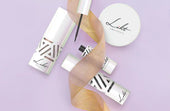
Liht Organics Black Friday: Enhance Your Beauty Routine with Vegan, Organic, and Natural Essentials!
As the holiday season approaches, there’s a sparkle in the air, and we at Liht Organics are thrilled to add a touch o...
-

Organic Makeup That Heals As It Conceals
Liht Organics Empowers Women With Only The Best For Their Beauty NeedsLiht Organics combines the best of both worlds:...
-
![[FEATURE] Liht Organics to debut at TFWA Asia Pacific show](//lihtorganics.com/cdn/shop/articles/1_1.png?v=1759328400&width=170)
[FEATURE] Liht Organics to debut at TFWA Asia Pacific show
‘Organic makeup that’s safe enough to eat’ — Liht Organics to debut at TFWA Asia Pacific show by Hannah Tan | 24 Apri...
-
![[FEATURE] The Singapore-based organic makeup brand is a first-time exhibitor at this year’s TFWA Asia Pacific Exhibition in Singapore in May 2025](//lihtorganics.com/cdn/shop/articles/2_1.png?v=1759328386&width=170)
[FEATURE] The Singapore-based organic makeup brand is a first-time exhibitor at this year’s TFWA Asia Pacific Exhibition in Singapore in May 2025
TFWA Asia Pacific preview: Liht Organics targets expansion in travel retail By DFNI Staff Writer The Singapore-bas...
-
![[FEATURE] Travel Retail Awards 2025 finalists - Best Make-up Product Color-Intense Liquid Lipstick – Liht Organics](//lihtorganics.com/cdn/shop/articles/4_e2f54f0f-fcd1-46e7-9990-fc9d29e35131.png?v=1759328382&width=170)
[FEATURE] Travel Retail Awards 2025 finalists - Best Make-up Product Color-Intense Liquid Lipstick – Liht Organics
Revealed: Travel Retail Awards 2025 finalists By Trbusiness Editor | Wednesday, 23 July 2025 15:21 TRBusiness is th...
-
![[FEATURE] Liht Organics targets expansion in travel retail](//lihtorganics.com/cdn/shop/articles/3_1.png?v=1759328346&width=170)
[FEATURE] Liht Organics targets expansion in travel retail
Organic makeup that’s safe enough to eat: Liht Organics targets expansion in travel retail By Laura Shirk Liht Organ...
-

[FEATURE] Gulf News: TikTok’s strawberry girl makeup trend: How to achieve that rosy glow inspired by Hailey Bieber
Berry, berry, strawberry, love strawberry, like BTS’s J-Hope, the band’s strawberry enthusiast once said. If only we ...
-

[FEATURE] Gulf Business Magazine : Liht-ing it up
Our founder, Nerissa Low was interviewed by Gulf Business, where she discussed her experience launching Liht, an orga...
-

[FEATURE] Daily Vanity: 11 local beauty brands owned by women – you’d be surprised how many of them started in their kitchens!
When we give a shout-out to homegrown beauty businesses, we aren’t just doing it for the sake of supporting local. Th...
-

[FEATURE] Entrepreneur ME : UAE-Based Liht Organics' Nerissa Low On Crafting An Organic Makeup Brand For The Skin-Conscious Consumer
As is the case with the origin stories of so many startups out there, Liht Organics came into being after its founder...
-
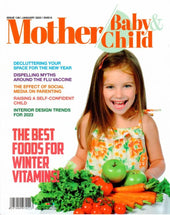
Mother, Baby & Child Editor’s Pick: Liht Organics Lights the Way
Excited to be the Mother, Baby & Child’s ‘Editors pick’ for their choice of Beauty brand.The article outlined the...
-
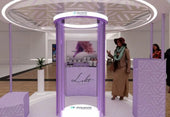
[FEATURE] EmiratesWoman - 8 Fabulous things to do in Dubai this weekend
by SARAH JOSEPHJANUARY 20, 2023Try the UAE’s first virtual reality makeup podium The popular VR-backed makeup exper...
-

Nerissa Low of Liht Organics On The Self-Care Routines & Practices Of Busy Entrepreneurs and Business Leaders
By Maria Angelova, CEO of Rebellious Intl.Date: 4 January, 2023Nerissa Low of Liht Organics On The Self-Care Routines...
-

Liht Organics: Meet the beauty brand that has caught the eye of the Royal Family of Bahrain
By Crystal Lee Digital Editor28 May 2021The world of clean beauty is, ironically, rather murky.That’s because the ter...
-

The latest luxury makeup and skincare drops, including serums, concealers, moisturisers and more
Allisa Noraini21 May, 2021It’s fine to splurge in the name of beauty. This new range of makeup and skincare drops are...
-

These SG Beauty Bosses Are Conquering The World Despite The Pandemic
First Singapore, then the US, China, Germany, Dubai, UK, South Korea, Malaysia, Hong Kong, Thailand, Australia… By...
-

Nerissa Low, Founder at Liht Organics
Written by Callum LaingPosted on December 26, 2020 10 min readNerissa Created Organic Makeup That Actually Improve...
-

Liht Organics – Makeup That Makes You
At Liht Organics, our mission is simple – to provide women (and men) with a safe experience when it comes to beauty s...
-

Why Should We Use Organic Makeup?
We cannot deny that cosmetics is one of our beauty essential item – it enhances our looks and conceals our flaws. Man...
-

Organic makeup and why your skin will love it: Liht Organics founder
By Jolene,July 27, 2020 |7 mins readOrganic make up in Singapore is a trend that is fast-catching on here as we becom...
-

[FEATURE] DC EDIT – Makeup & Confidence: Talking Self-love With Liht Organics’ Founder Nerissa Low
Makeup and confidence — the long, drawn-out fight that many of us have grappled with personally. I’m sure I’m not the...
-

[FEATURE] THE FEMALE CULTURE – I TRIED LIHT ORGANICS AND THIS IS HOW IT WENT
I’m a huge fan of makeup and I love testing out new products so I was pretty excited to get my hands on Liht Organics...
-

[FEATURE] SINGAPORE MOTHERHOOD – The Best Organic and Natural Skincare and Makeup for Pregnant and Breastfeeding Mums in Singapore
Pregnancy is a hormone-volatile period for women. One place where this makes itself seen and felt is on the skin. Som...
-

[FEATURE] AFTER CLINIC HOURS – 21 Back to Beauty Deals in Singapore (2020)
With spas and salons shuttered island wide for two months, I never thought I’d be this desperate for a good old’ Swed...
-

[FEATURE] KUL AL USRA MAGAZINE JUNE 2020
Choosing Pinks & Oranges this summer!Featured: Moisture Burst Lip Glaze in Pink Cupcake.
-
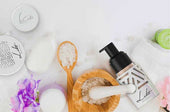
[FEATURE] Award-winning Organic Makeup Brand Liht Organics Gives Back to the Community & Environment During COVID-19
Singapore’s First Organic Makeup Brand with 100% Natural Makeup That Is Safe Enough to Eat Liht Organics promises org...
-

[FEATURE] COSMETICS DESIGN ASIA – COVID-19 ‘WAKE-UP CALL’: SINGAPORE’S LIHT ORGANICS SEES GLOBAL POTENTIAL AMID CLEAN BEAUTY CLAMOUR
Original article at: https://www.cosmeticsdesign-asia.com/Article/2020/06/26/Singapore-s-Liht-Organics-sees-globa...
-

[FEATURE] THE LIFESTYLE COLLECTIVE – BEAUTY SHOULD NEVER BE CRUEL
Date: June 24, 2020Author: Kristen Chen Liht (pronounced as light) Organics is a Singaporean organic makeup brand t...
-

[FEATURE] NÜYOU – 7 ONLINE PLATFORMS TO SHOP FOR CLEAN BEAUTY PRODUCTS
纯净美容(Clean Beauty)的美肤概念,再近几年来越来越受欢迎。随着消费者“爱自己”的美容意识逐步提升,对于用在脸上的所有物品、成分更为关注和讲究。以广义来讲,纯净美容主张使用“干净”成分和无毒配方,让肌肤的可能性损伤减到最小...
-

[FEATURE] COSMOPOLITAN MIDDLE EAST – 3 BENEFITS OF SWITCHING TO ORGANIC BEAUTY PRODUCTS THIS RAMADAN
By Cosmo – May 08, 2020Nerissa Low, founder of Liht Organics, shares the ultimate benefits of going organic this mont...
-

Nerissa Low of Liht Organics: “Seeing Light at the End of the Tunnel; 5 Reasons To Be Hopeful During this Corona Crisis”
Ely Weinschneider, Psy.D.May 8 · 9 min read …It shows us that everyone- whether we are rich or poor, regardless...
-

[FEATURE] AL MARA MAGAZINE APRIL 2020
-

[FEATURE] RetailME April 2020 – Liht Organics Stays Firm On Strengthening GCC Presence
-

[FEATURE] EMARAT AL YOUM NEWSPAPER – 27 MARCH 2020
English Translation:In spring and summer days, women love to have very light makeup in terms of color and texture, ...
-

[ARTICLE] WKND Magazine March 2020 – Know Your Organic Makeup
-

[FEATURE] AVIAMOST DUBAI – March/April 2020
English Translation:Lipstick with organic flowers. Thanks to the rich complex of natural ingredients, the lipstick...
-

[FEATURE] RUSSIAN EMIRATES (MAR/APR ISSUE)
Russian Emirates is a luxury lifestyle and fashion magazine covering information about the UAE, fashion, beauty, j...
-

[FEATURE] – KUL AL USRA MAGAZINE MARCH 2020
GET THE LOOK!
-

[FEATURE] IMAGES Retail ME – Liht Organics Announces GCC-Wide Expansion
Rupkatha Bhowmick Mar 10, 2020 The plan is to reach 75 Liht Organics retail touchpoints by June-July 2020 and touch...
-

[FEATURE] BABY & CHILD SPRING 2020 – NATURAL BEAUTIES
-

[FEATURE] AWQAT DUBAI – Liht Organics: The First Premium Organic Makeup Brand
ENGLISH TRANSLATION:Liht Organics – The First Premium Organic Makeup Brand Liht Organics, a premium organic beauty ...
-

[FEATURE] FRIDAY MAGAZINE – THE RETRO EYELINER LOOK
-

[FEATURE] MOTHER BABY & CHILD – VANITY ESSENTIALS – THE BEAUTY EDIT
-

[FEATURE] Masala! Magazine February/March 2020 Issue – Beauty Debut: Liht Organics
-

[Feature] – TimeOut Singapore – The Best Local Beauty and Skincare Brands In Singapore
For full article, click here.
-

[FEATURE] KUL AL USRA MAGAZINE – LIHT UP YOUR WORLD WITH LIHT ORGANICS
[ENGLISH TRANSLATION]Liht Up Your World With Liht OrganicsThe First Premium Organic Makeup Brand To Debut In The Mi...
-

[FEATURE] SINGAPORE TATLER – 9 Local Beauty Brands You Should Know Of
-

[FEATURE] nüyou August 2019 Issue – 15 Faces To Watch
-

[FEATURE] HONEYCOMBERS – Local Beauty Gurus: Singapore Beauty Brands You Need To Know About
-

[FEATURE] The Wellness Insider – Seeing The Liht With Founder Nerissa Low
-

[FEATURE] 联合早报 (LianHeZaoBao) – Women Entrepreneur Awards 2019 Coverage
-

[FEATURE] THE STRAITS TIMES Life – Clean beauty with a Singapore heart
-

Romantic Organic Makeup Looks for Valentine's Day: Tips, Tricks, and Product Picks
Valentine's Day is the perfect occasion to embrace the beauty of organic makeup. At Liht Organics, we believe in the ...
-

Enhance Your Eyes: A Guide to Eyeliner for Every Eye Shape with Liht Organics
Welcome to the Liht Organics blog, where we believe in celebrating the natural beauty of every eye shape. Today, we'r...
-
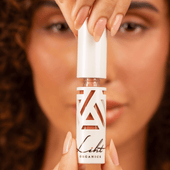
How to do makeup with only lipstick?
At Liht Organics, we believe in the power of clean beauty and the artistry of makeup. Makeup is more than just enhanc...
-

How to Clean Your Makeup Brushes in 6 Simple Steps
Cleaning your makeup brushes may seem like a tedious task, but it's an essential part of your beauty routine. Not onl...
-

Makeup Tips to Help You Look Your Most Flattering on Virtual Meetings!
After more than 2 years of work-from-home arrangement, and possibly hundreds of zoom calls and Google meet virtual me...
-

Learn How to Contour with This Simple Guide for Beginners
Want to take your makeup to the next level? Try contouring to achieve a more defined or sculpted look à la the Kardas...
-
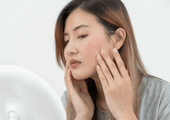
Essential and Easy Makeup Tips for Sensitive Skin
Living with sensitive skin conditions like eczema, psoriasis, and more is already not an easy feat. Throw in makeup t...
-

Raising Your Vibration: A Liht Organics Guide for Empowerment This International Women's Day
wp:paragraph As International Women's Day (IWD) approaches, it serves as a powerful reminder of the journey towards s...
-

The Beauty of Going Bare: Why Sleeping with Makeup is a No-No
Have you ever had one of those nights where you're too tired to clean off your makeup? You might believe, "Skipping...
-

Breast Cancer Awareness: Empower Your Beauty with Liht Organics Makeup
During October, we observe Breast Cancer Awareness Month as a way to unite and bring attention to breast cancer whil...
-

The Hidden Dangers of Carmine in Makeup Colorants: Embracing Healthier and Vegan Options
Makeup has become an integral part of our daily routines, allowing us to express our unique beauty. However, as we pr...
-

How can I ensure that my makeup products are organic and won't harm my skin?
When it comes to makeup, it’s important to be mindful of what you’re putting on your skin. With so many products on t...
-
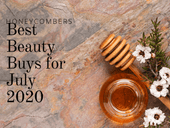
[FEATURE] HONEYCOMBERS – BEST BEAUTY BUYS IN JULY
by Nicole NithiyahWhat’s hot in our beauty hit list: Honest thoughts and top beauty stories we’re swooning over. As w...
-

Liht Organics Introduces Exclusive Gift Sets: Enhance Your Beauty This Festive Season!
As the holiday season approaches and the year draws to a close, Liht Organics is thrilled to present two enchanting g...
-

Get Spooktacular with the Best Halloween Makeup Ideas using Liht Organics' All-Natural, Vegan, and Cruelty-Free Cosmetics!
With Halloween just around the corner, it’s time to let your creativity shine and transform yourself into a spooky,...
-

Celebrating World Animal Day with Liht Organics: Embracing Natural Cruelty-Free Makeup
wp:paragraph As we observe World Animal Day, the team at Liht Organics takes great pride in honoring our pledge to...
-
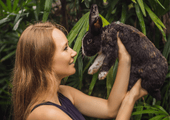
Reasons Why You Should Choose Cruelty-Free Cosmetics Instead!
With increasing exposés unveiling the ugly truth behind animal testing that goes on in the beauty industry, it is lit...
-

Celebrate Singles Day with Makeup That Empowers – 22% Off at LIHT Organics!
This Singles Day, treat yourself to beauty that goes beyond skin-deep. At LIHT Organics, we believe makeup is about s...
-

Preparing for the Cozy Beauty of Autumn: A Preview of Your Fall Look
As we bid farewell to the warm, sun-kissed days of summer, it’s never too early to start dreaming about the enchantin...

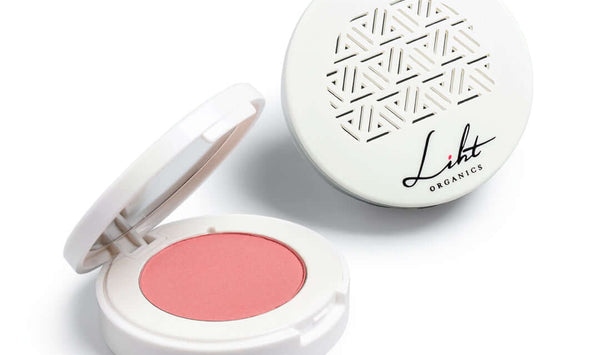
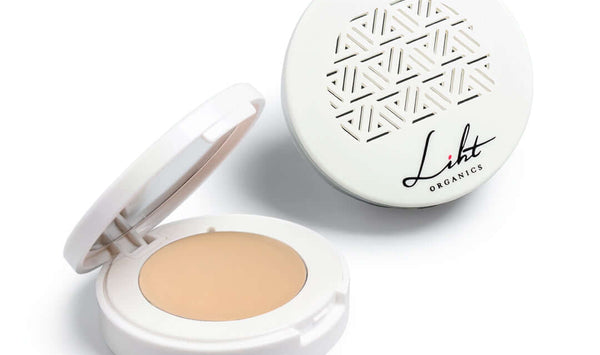
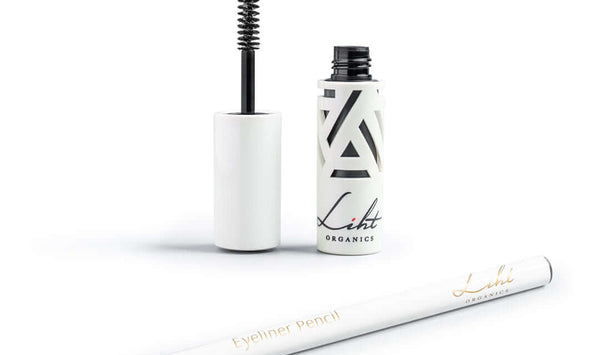
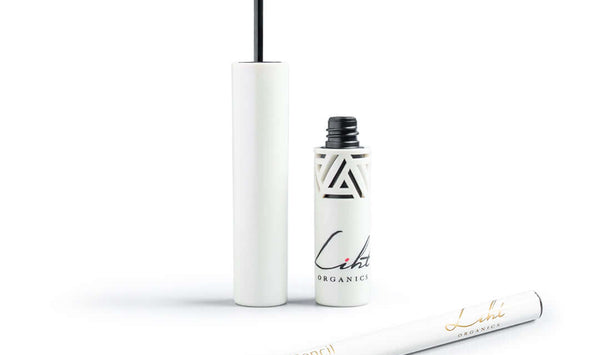
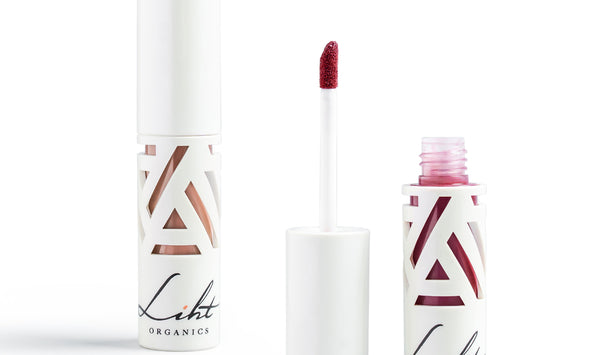
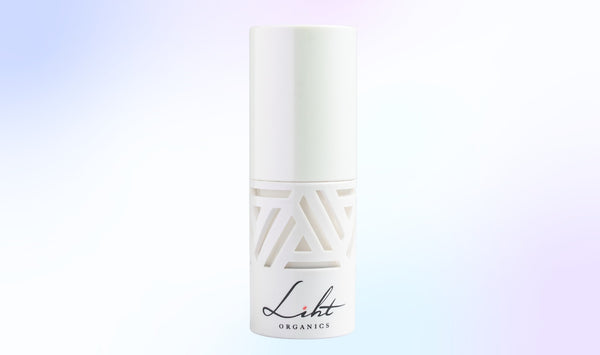

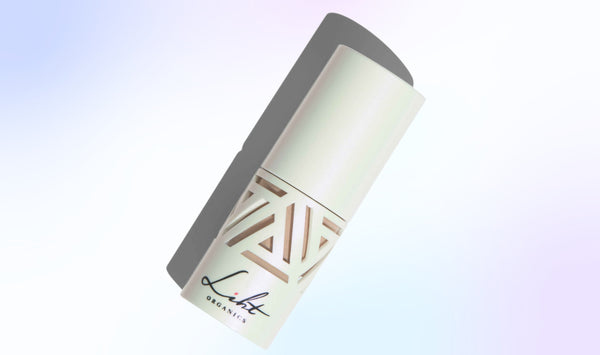
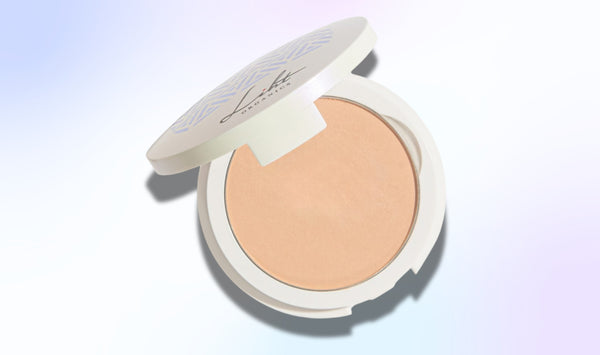
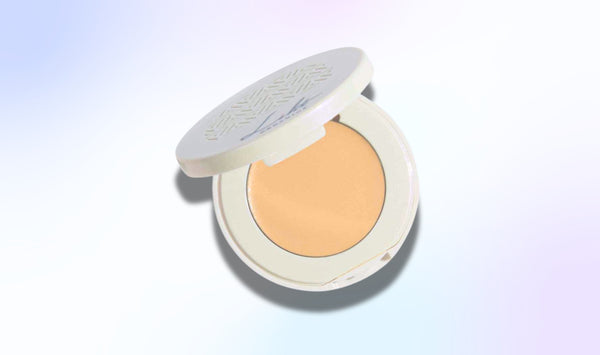
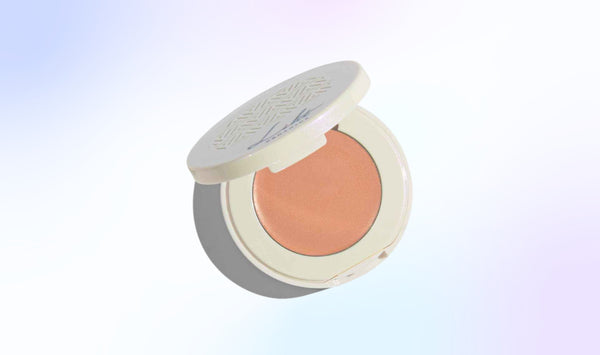
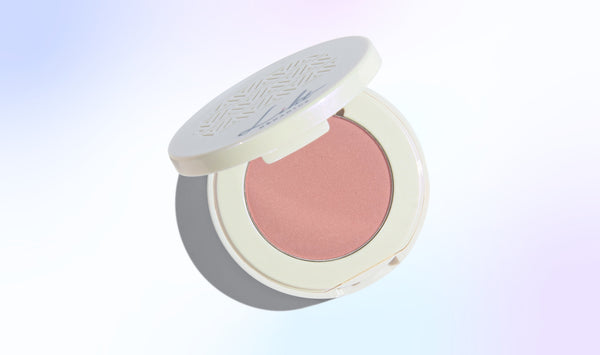
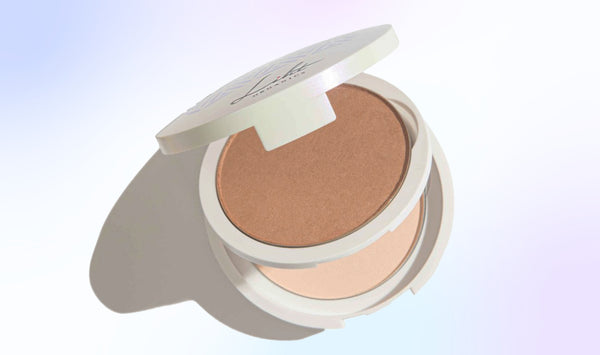
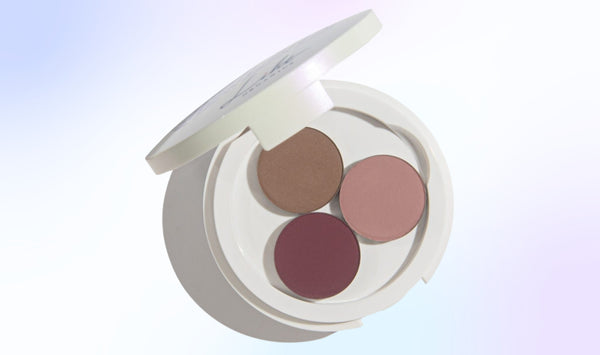
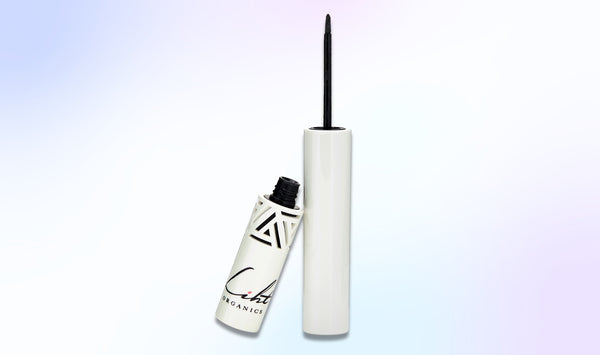
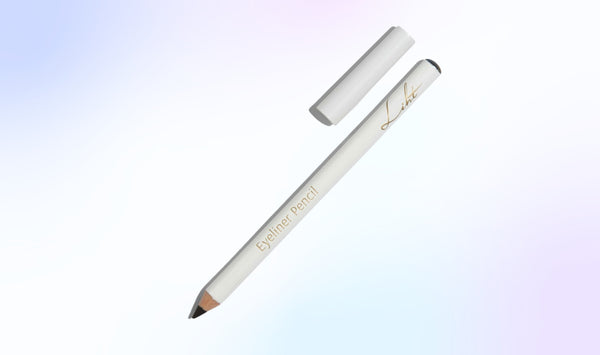
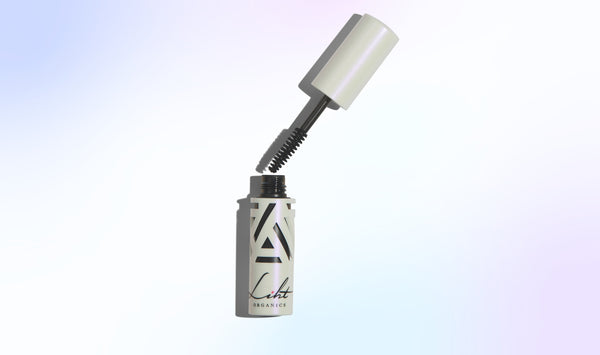
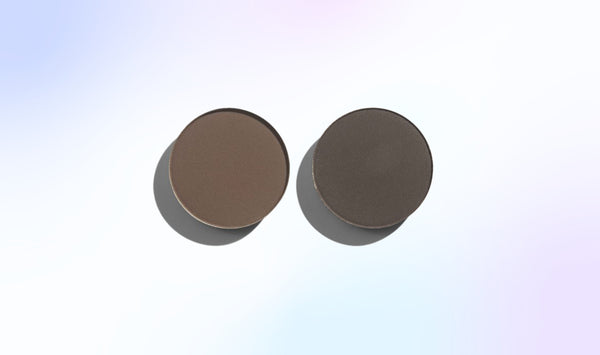
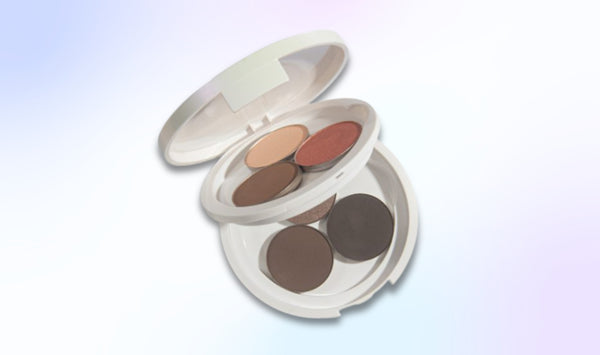
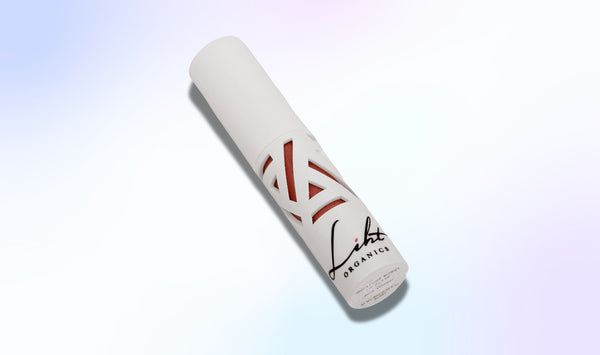
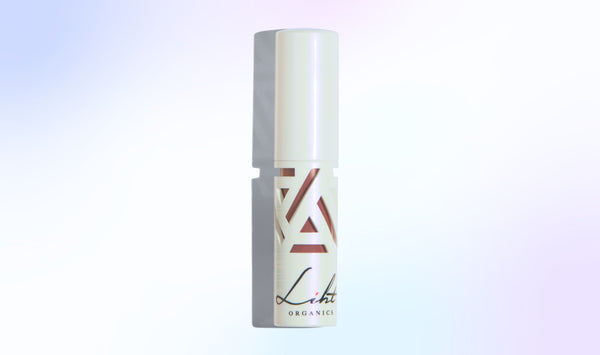
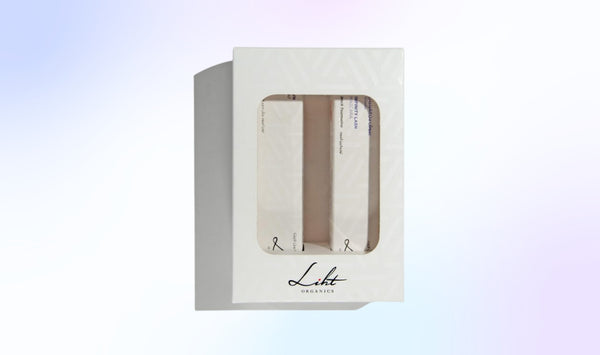
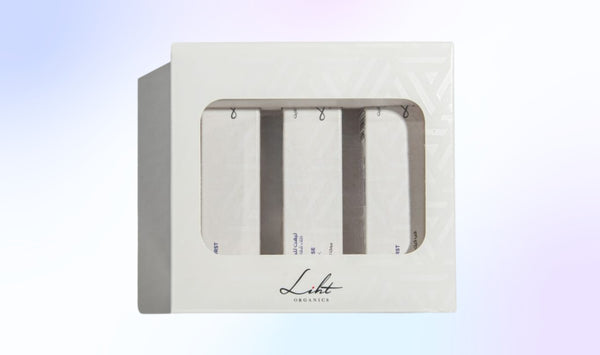


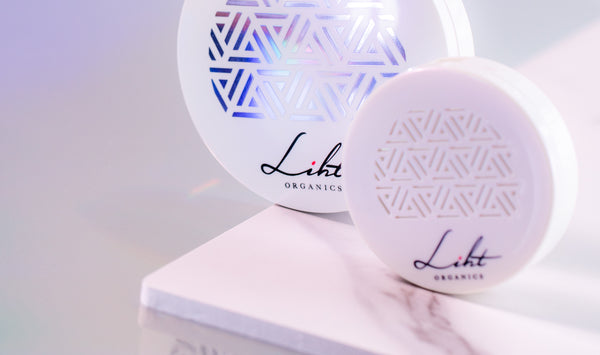
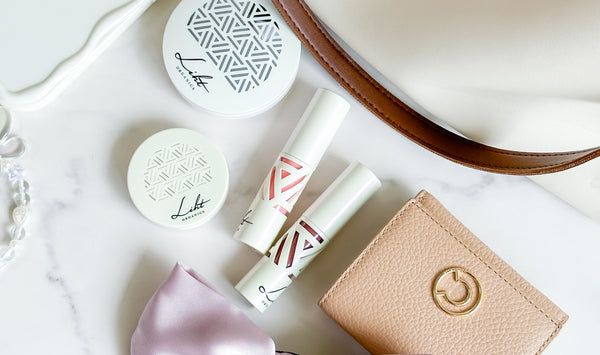
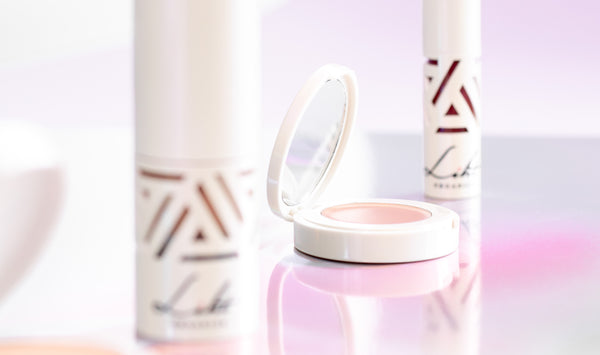




![[FEATURE] Liht Organics to debut at TFWA Asia Pacific show](http://lihtorganics.com/cdn/shop/articles/1_1.png?v=1759328400&width=170)
![[FEATURE] The Singapore-based organic makeup brand is a first-time exhibitor at this year’s TFWA Asia Pacific Exhibition in Singapore in May 2025](http://lihtorganics.com/cdn/shop/articles/2_1.png?v=1759328386&width=170)
![[FEATURE] Travel Retail Awards 2025 finalists - Best Make-up Product Color-Intense Liquid Lipstick – Liht Organics](http://lihtorganics.com/cdn/shop/articles/4_e2f54f0f-fcd1-46e7-9990-fc9d29e35131.png?v=1759328382&width=170)
![[FEATURE] Liht Organics targets expansion in travel retail](http://lihtorganics.com/cdn/shop/articles/3_1.png?v=1759328346&width=170)
































































